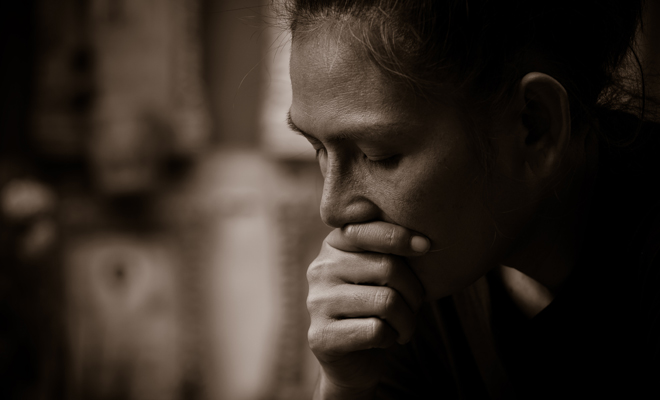Life confronts us with death. The death of our loved ones is a heartbreaking loss that will be overcome with time and the work we put in to achieve it, but it can continue to hurt forever. Which does not mean that we will suffer that loss forever. We wonder how long mourning the death of a loved one lasts. Because when the loss occurs, the doubt enters us: will I ever recover?
What happens when a loved one dies?
- How long am I going to feel like this? It is the question that anyone asks themselves when they lose a loved one. The death of a family member is one of the most painful experiences and causes enormous suffering. But we already know that pain and emotional suffering are not the same, so that death may hurt you forever, but it doesn’t have to make you suffer forever.
- It does not depend on the conditions in which the death occurred or even on the person who has died. It depends on you, your life circumstances and the ability you have to ask for help. Because in case you are wondering: the death of a loved one is reason enough to go to the psychologist. That at least if you manage to recognize that this death is making you suffer.
- There are two very different attitudes towards the death of a loved one. While there are people who do not allow themselves to acknowledge pain or suffering and force themselves to be well and, in this way, to avoid mourning, there are other people who are installed precisely in this mourning process and cannot get out of it. They are not allowed to exceed it. Generally, in both cases you end up needing psychological help to continue.
The time that the duel lasts
- But it is true that most people know that they have to go through a period of time in which the pain and suffering of loss becomes almost unbearable. They also know that there will come a time when they can carry on with their lives despite the loss, but that time seems so far away. How long does the duel last? Obviously, there is no set time, no matter how much the experts indicate three months, six months, a year or two years as goals to overcome.
- Time doesn’t heal everything, what heals is what you do with that time. That time of mourning that in each person is different. It is true that it is usually at three months when you can begin to feel some relief from that excruciating pain, but that does not mean that you have overcome his death. From him.
- It is also true that a year is a key date. One year after the death of that person, all the dates indicated have passed, such as his birthday, yours, an important holiday for that person, personal anniversaries… and the dreaded Christmas. Once you get through those big dates for the first time, the next ones hurt less.
The stages of mourning the death of a loved one
- In any case, as long as you agree to follow the grieving process and do not try to avoid it, what matters most about grieving is not the duration but its phases or stages. Here we can see the same thing, each person will experience the stages of grief differently, but in general terms this is what awaits us all.
- The denial stage begins when you suffer that first shock from the news of the death. You do not stop believing it, it is not possible, that person is essential in your life and you cannot assimilate that he will no longer be by your side. During this stage it is common to see your life from the perspective of a bystander, as if it were not really happening to you.
- The stage of anger, which is accompanied by resentment and frustration, appears when you have no choice but to accept what has happened. That person you loved so much has died and it doesn’t seem fair to you. You get angry with life, with death, with the universe and even with yourself.
- The negotiation stage allows you to illusoryly be in control of events. You imagine modifying destiny, you make pacts with the universe or with the gods so that this death does not occur. At the end of this stage, a strong feeling of guilt appears for not having been able to prevent that death.
- The stage of depression is the key phase of mourning. The anguish may be minor, but it is because any emotion you may feel is covered by the veil of sadness. A dark and infinite sadness, an emptiness that can trap you for longer than expected and that can generate, if you don’t ask for help, a full-blown depressive disorder.
- The stage of acceptance comes when you get out of that phase of depression and sadness. It is not that you have overcome that death, but that you have reached the moment in which you consider that sooner or later you will have to resume your life, you will have to move on and you will have to find strategies so that suffering does not prevent you from continuing with your life. As stated in a thesis from the Pontificia Universidad Javeriana (Bogotá) on death and mourning, “acceptance comes when one can think of the loved one without emotional feelings of longing and sadness, when one can remember them realistically, without pain”.
How to get over the death of a loved one
- As we say, these stages of grief can come and go, they can appear several times and you feel as if you have regressed. But it’s not like that. To overcome the death of a loved one, it is not enough with the passage of time or having already gone through all the stages of mourning. There are some things that you have to be very clear about and you may need help to internalize them.
- One of the most important is that guilt struggle that is created when your emotional survival instinct tells you to move on. But that seems to you a lack of loyalty towards the deceased person. With what right are you going to go to a party, are you going to laugh, are you going to enjoy life if that person you loved so much is no longer there? Discovering that, in fact, you have that right and, not only right, but also obligation, can take a while.
- As it will also take you a while to learn to differentiate pain from suffering. It is natural for you to grieve the death of a loved one and it is also natural for you to grieve for that loss. But you have to put an end to the suffering and that’s what the grieving process is for. Because even when you have overcome the death of that person, you will not stop feeling pain, you will stop suffering. But the pain will stay there, sometimes more intense and other times more bearable.
- Don’t try to avoid thinking about that person, don’t try not to talk about them. He thinks, talks and cries and lets the pain express itself. You will never forget that person, do not be afraid of overcoming her death because it seems to you that this is how you are going to forget her. Why would you forget her? Even if it seems impossible now, there will come a time when the memory of that person will not make you cry but laugh. You will see that remembering that person will not because you anguish, but an immense affection.
